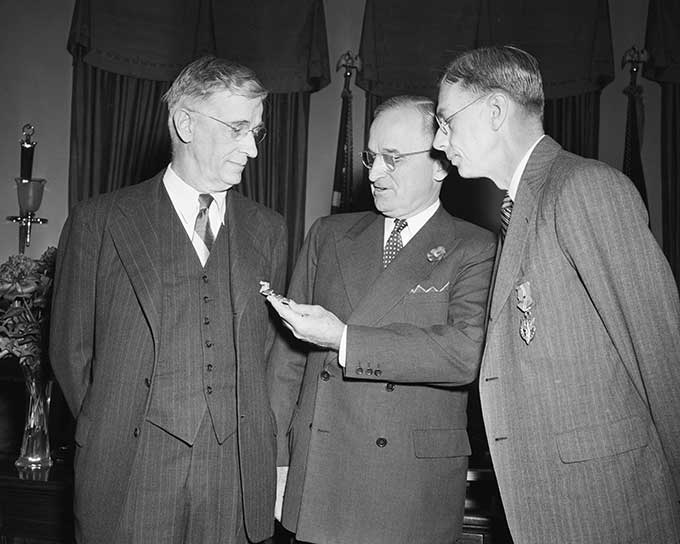Harvard University won a skirmish with the Trump White House earlier this month when a federal judge ordered the administration to restore most of the $2.2 billion in research funding it had frozen in April. But the larger conflict between the federal government and America’s research universities will undoubtedly endure.
In part, that’s because the mostly unwritten contract governing research funding has broken down. Universities too often use taxpayer dollars to bankroll projects that don’t serve the national interest. Washington should renegotiate this contract to sustain the vital role of academic science in America’s economy.
Federal research funding has never been a no-strings gift. Since Congress decided in the late 1940s to support science through agencies like the National Institutes of Health, grants have carried an implicit condition: in exchange for taxpayer money, universities would pursue research that advanced America’s interests.
After World War II, policymakers didn’t need to spell this out, because the nation’s top universities left no doubt about their allegiance. Harvard president James Conant and other academic leaders helped mobilize science for the war effort, aiding in the deployment of radar, penicillin, and the atomic bomb.
In 1945, President Franklin D. Roosevelt’s science advisor, Vannevar Bush, penned Science: The Endless Frontier. He envisioned a future in which science would be “brought to the center of the stage” in support of American industry, medicine, and defense, and that universities would conduct most basic research.
The late 1940s saw a fierce debate over science policy. Congress subjected university research to a governance framework conceived by Senator Harley Kilgore, a Democrat from West Virginia. Under these rules, grant makers would choose projects according to their alignment with national goals and their scientific merit—rather than making block grants to whole institutions—and provide transparent reporting to the American people. This would ensure that science policy was democratically accountable.
For six decades, this approach worked. U.S.-based researchers earned more than twice as many Nobel prizes as Europe-based scientists on a per capita basis between 1950 and 2010. From 1975 to 2024, the United States gave rise to some 250 new firms that were eventually valued at over $10 billion, mostly in R&D-intensive industries. Europe, by contrast, produced about 14.
Today, however, America’s academic research establishment has drifted away from the understanding that prevailed from 1945 until about 2010. A significant share of today’s science research focuses on ideological subjects—like gender medicine and “structural racism”—that don’t reflect widely shared national priorities.
University research also delivers lower value for money than it did in the past. Institutions increasingly fund bloated bureaucracies with elevated “indirect cost” recovery payments from federal agencies and deploy cost-shifting mechanisms like sky-high patient-care prices at university-owned hospitals.

Research dollars also yield fewer breakthrough ideas than before. This stagnation reflects the growing number of researchers involved in each project and a shift away from potentially transformative projects in favor of ones that confirm what scientists already know.
Finally, accountability has declined throughout the system. Published research faces a credibility crisis, in part because of widespread academic fraud. Faculty hiring and advancement criteria have become increasingly opaque and divorced from merit. Some universities have fueled doubts about whether they even think of themselves as American institutions by permitting faculty relationships with the Chinese Communist Party and accepting undisclosed grants from autocratic Middle Eastern governments. Grantmaking agencies have done little to reverse these trends, perhaps because of ideological capture.
Surveys show that Americans strongly support research funding but also want to update the contract governing it. A March 2025 Science Coalition-Forbes Tate poll found that 85 percent of respondents believed it was important for the U.S. to be the world leader in scientific research, while 74 percent—including 72 percent of self-identified Republicans—supported federal funding for scientific research. Large majorities indicated support for research advancing medicine, defense, and clean air and water.
Only 42 percent, however, expressed “a great deal” or “quite a lot” of confidence in American universities in a July 2025 Gallup survey. Respondents with low confidence most often cited universities’ “political agendas” or “wrong focus.”
These results present an opportunity to update the agreement between taxpayers and universities. Washington should build on the principles of the 2025 Manhattan Statement—institutional neutrality, truth over ideology in teaching, and free speech—by outlining universities’ responsibilities in research activities. Federally funded universities should be required to restrict taxpayer-funded research to established national priorities like health care, clean air, economic competitiveness, and defense; improve research value for money; and remain transparent and accountable to Congress.
In addition, Congress should set lower, uniformly applied indirect-cost-recovery ratios to ensure that taxpayers get more value for their money. Universities should reform peer review and promotion processes to create stronger incentives for transformational research. And Congress should require institutions to disclose their research and technology commercialization activities, while perhaps isolating federally funded research in a separate subsidiary with its own financial reporting.
In return, the Trump administration should commit to a predictable funding model that at least sustains America’s pre-2025 level of science investment. The aim of this new contract is to reform and modernize academic science, ensuring that researchers once again advance the nation’s interests as they did in the past.
Top Photo by Suzanne Kreiter/The Boston Globe via Getty Images
City Journal is a publication of the Manhattan Institute for Policy Research (MI), a leading free-market think tank. Are you interested in supporting the magazine? As a 501(c)(3) nonprofit, donations in support of MI and City Journal are fully tax-deductible as provided by law (EIN #13-2912529).

















